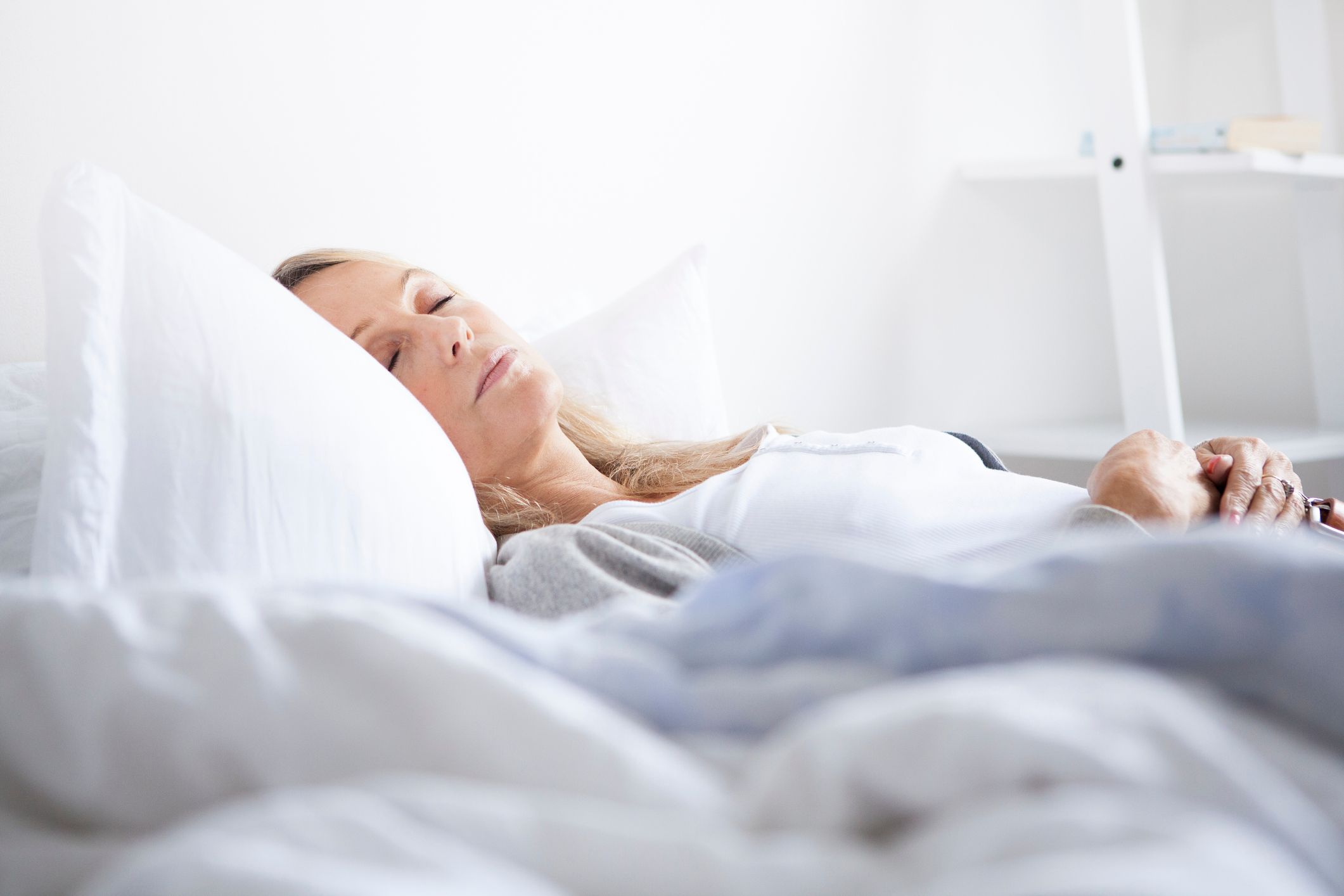Everyone you know is complaining that they can't get a good night's sleep. (As if that makes you feel any better.) And the older we get, the tougher it seems.
We all need our beauty rest. But there are even more important reasons to focus on sleep than just that, like an association between sleep loss and Alzheimer's risk. And there are other health risks like a higher risk of high blood pressure, heart disease, obesity and diabetes.
Not fun, right? Instead of giving you the tiresome advice you've heard for decades now, we're giving you some alternatives to help you sleep better and deeper. Because a good night's sleep is a bad thing to waste.
For When the Noise Is Too Much to Bear …
Whether your partner snores like a freight train or the traffic outside your window is frightful, you need to block it out. There are many ways to do it (like apps with sounds of rain, thundershowers or just about anything), but the tried and true method of good old white noise, with a machine like this from Lectrofan, has a way of masking all those offensive sounds.
For When You Need Just a Little Light …
There's nothing more annoying than having to get up in the middle of a deep sleep to use the bathroom. Oh, wait; there is—getting up and groping in the dark. Casper, the mattress company, has a way to fix that with their smart light, called the Glow Light, that also does reading light duty and will even help get you out of bed in the morning by gently warming the room with a soft glow.
For When You Need a Warm Hug …
If you sleep alone or your bed partner doesn't like to cuddle, a blanket like this from Gravity might be a good substitute. Fans of weighted blankets (they've been recommended by mental health therapists for years for things like autism, anxiety and other issues) swear by it for its ability to relieve anxiety and insomnia. The idea behind it is that deep pressure releases serotonin and dopamine, two neurotransmitters that can help you relax.
For When You Need to Block Out the Light …
Since some people are bothered by even the faintest light (and sleep hygiene rules favor darkness), make it possible with eye shades like these from FOMI. They not only look cute with their on-trend cheetah print, but they can help sinus pressure, migraine pain and dry eyes because they're filled with microwavable clay beads that heat up to soothe. An added plus is their soothing aromatherapy lavender scent.
For When You and Your Sleeping Partner Just Can't Agree …
It's too hot, it's too cold: 55 percent of couples disagree on sleep temperature. Not only can the bedroom temperature affect your sleep (experts recommend keeping it cool), but so can body temperature. And if you're menopausal, chances are your night sweats are too much to bear—yet that doesn't mean the person sleeping on the other side of you is hot, as well. BedJet can help by supplying climate-control directly to your mattress (single or double-zoned), so you need not bicker or move to separate bedrooms. Consider it marriage counseling in a machine.
For When You Need a Little Help From Your Friends …
Become acquainted with an app like Calm. It can tell you soothing bedtime stories, teach you to meditate, play gentle lullabies and just about tuck you in to help send you off to shluffy (aka shut-eye).
For When You're Wondering About How to Refresh Your Bedding …
Yes, pillows and mattresses can—and should—be cleaned.
According to the experts at Saatva, clean your mattress twice a year by sprinkling it with baking soda, letting it sit, then vacuuming. Mix in some essential oils like lavender for a fresh, spring scent.
Many pillows can be washed (refer to the label for specific instructions) and should be cleaned every three to six months and replaced every one to two years.


